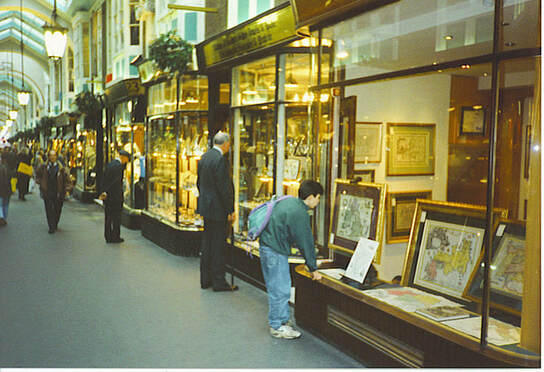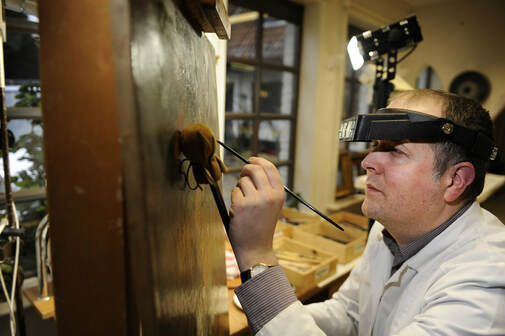antiquities trading and Museum Practice: codes of conduct
This page provides guidance and codes of conduct for ethical practice relating to objects - specifically their collection, purchase and trade.
If you are looking for practical guidance, please see the page Countering Object Trafficking: Tools.
If you are looking for practical guidance, please see the page Countering Object Trafficking: Tools.
ANTIQUITIES DEALERS' ASSOCIATION CODE OF CONDUCTThe Antiquities Dealers Association (ADA) is the pre-eminent trade association for dealers in antiquities within the United Kingdom and all members are required to adhere to its Code of Conduct. Read the CoC on the ADA website. |
Antiques shops in Burlington Arcade, London © ColinSmith, W1994, CC BY-SA 2,0, via Wikimedia Commons.
|
Association of International Antiquities Dealers (AIAD)The Association of International Antiquities Dealers (AIAD) intends to promote the benefits of artefact collecting and of the antiquities trade, to help prevent fraud and the circulation of forgeries. Publication of research into ancient artefacts in order to contextualize them within their source cultures benefits archaeologists, collectors, art historians and students of all aspects of human cultural activity.
You can read the CoC of AIAD on their website. |
Museums Associations code of ethicsThe Museums Association is the only organisation for all museums in the four nations of the UK. This code supports museums, those who work in and with them and their governing bodies in recognising and resolving ethical issues and conflicts. It sets out the key ethical principles and the supporting actions that museums should take to ensure an ethical approach to their work.
In all cases, practitioners should conduct a process of careful reflection, reasoning, and consultation with others, as well as consulting further detailed guidance on key areas of museum practice prepared by the Museums Association (MA) and other bodies. You can read the CoC on their website. |
ICOM Code of EthicsThe ICOM Code of Ethics for Museums sets minimum professional standards and encourages the recognition of values shared by the international museum community. This reference tool provides guidance and is presented as a series of principles supported by guidelines detailing expected professional practice. The ICOM Code of Ethics for Museums addresses diverse museum-related topics such as acquisition procedures, compliance with legislation, management of resources, security, returns and restitutions. The Code advocates strong principles playing a key role in the fight against illicit traffic, for instance concerning due diligence and provenance.
You can read the ICOM Code of Ethics on their website. |
Icon’s (Institute of Conservation) Code of Conduct for conservatorsThe Code of Conduct states the general principles and obligations governing the behaviour of the Institute of Conservation’s members, including members who are volunteering or in training. The Code should be read in conjunction with the Institute of Conservation’s Professional Standards.
Professional conduct with respect to items illicitly traded is covered most directly in point 4.14 of the CoC. The document can be downloaded directly from the ICON's website. |
Restoration of a painting © NejatNâsır
|




